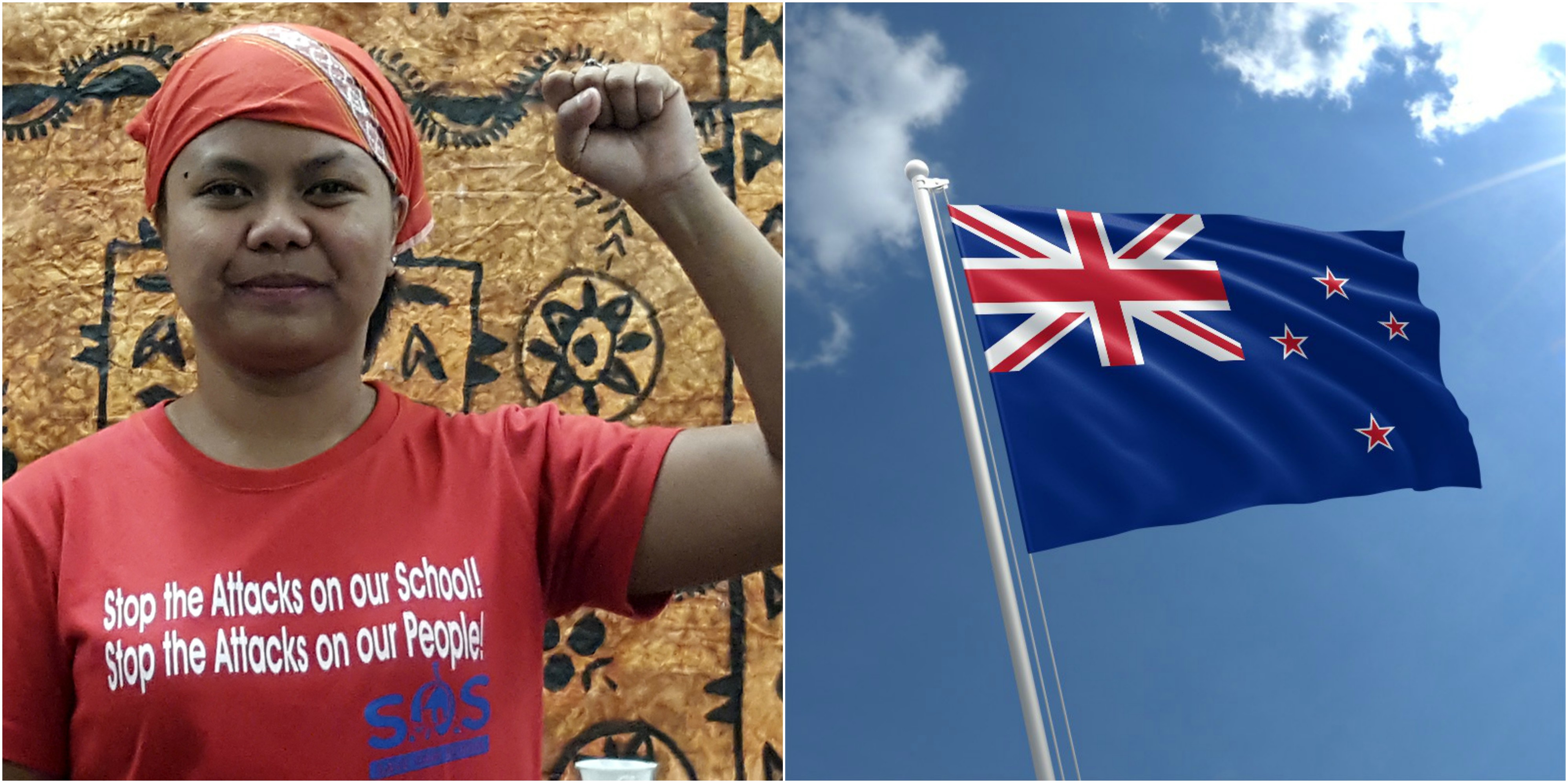In an event organized by the Auckland-Philippines Solidarity and the Catholic Justice & Peace Commission, I had the chance of listening to Lumad activists who were visiting New Zealand to talk about the plight of their communities in the Philippines under the current administration of President Rodrigo Duterte. Their New Zealand-wide tour, which also included Wellington and at least four different locations in Auckland, was to raise awareness of the heightening militarisation of Lumad communities.
The term “Lumad” is the umbrella name for all the indigenous tribes in the Mindanao region, the Southern part of the Philippines. They include the Blaan, Bukidnon, Mandaya, Manobo, Tasaday, and T’boli among many.
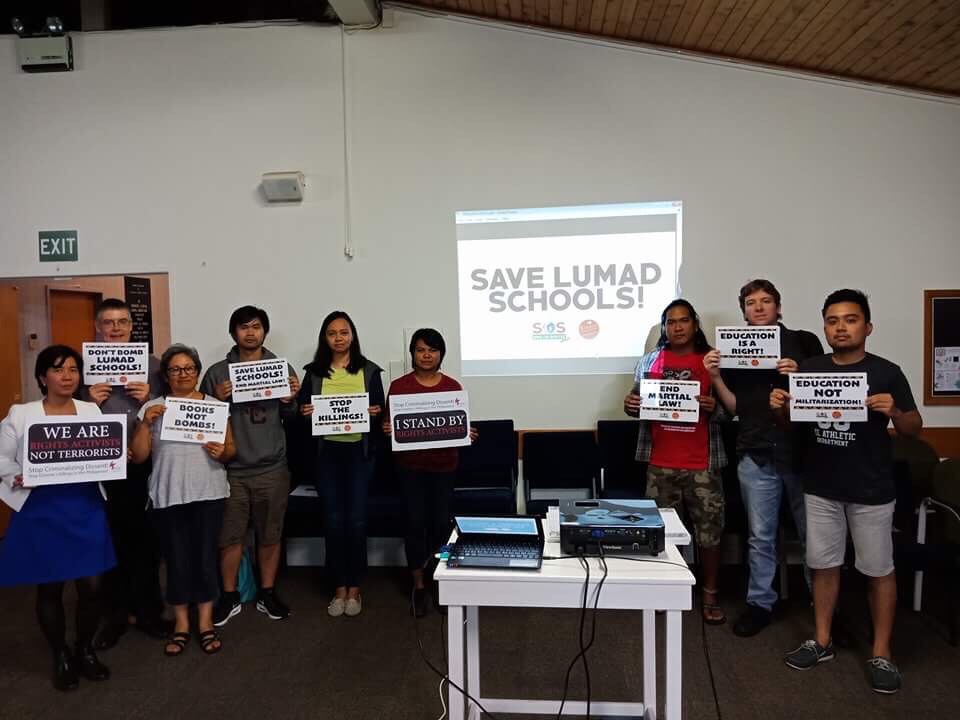
The speaker of the night, Junance Fritzi Magbanua, traces her roots to the Teduray and Maranao tribes and is an educator working with a Lumad school in Talaingod, Davao del Norte. While Talaingod may be a 2nd-class municipality with a functioning local government and basic public amenities, the Lumad school which Junance teaches in is located in the remote mountaintops where the Lumad people reside.
During her talk, Junance narrated the pain-staking ordeal she and other teachers go through in order to reach the town center where they purchase most of the food items and other necessities such as toiletries they need. She shocked New Zealanders and Filipino-New Zealanders in the audience when she said that it took them two days of walking to reach the urban community from their school, this trek involves crossing a single river dozens of times.
Their school is not located in such an inhospitable environment by choice, it exists in that specific location because it is the ancestral domain of that Lumad community and their people have been inhabiting it for millenia. For them, “land is life”, and they are willing to make the arduous journey – which includes walking for an hour to reach the nearest potable water source – just to preserve their ancestors’ way of living.
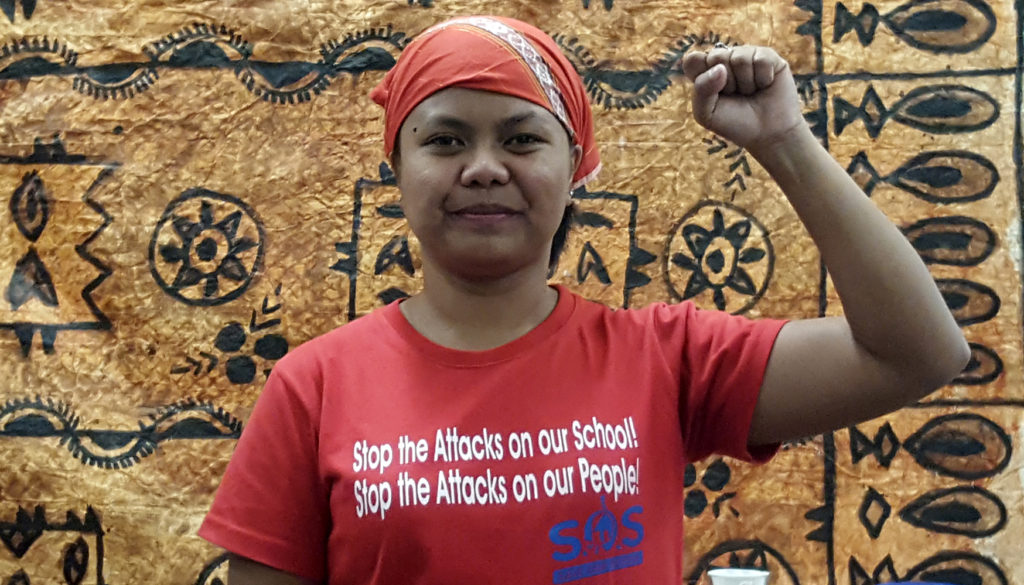
Despite their regular lives already being a challenge in itself, Junance’s school – along with hundreds of other Lumad schools in the Mindanao region – are facing constant harassment and sustained militarisation from the Armed Forces of the Philippines (AFP) as well. Apart from being a remote area, the land that Junance’s school in Talaingod sits on is rich with valuable minerals that have attracted the interest of multinational mining companies.
The Lumad tribes have witnessed the deaths of their tribal chieftains, elders and activists over the years, all part of a ploy to drive them out of their lands in order for mining operations to take place. This attack on Lumad schools was at the forefront of Junance’s New Zealand visit, she was joined for the “War Against Indigenous Schools” Tour by Anthony “Pele” Navarro and Lorena Sigua – all three are part of the advocacy group, Save Our Schools (S.O.S.) network.
The group was formed as a response to the militarisation of schools, to safeguard the right of children to acquire an education. Their network now comprises of 215 community schools in Mindanao, with over 10,000 members which includes students, educators and other activists.
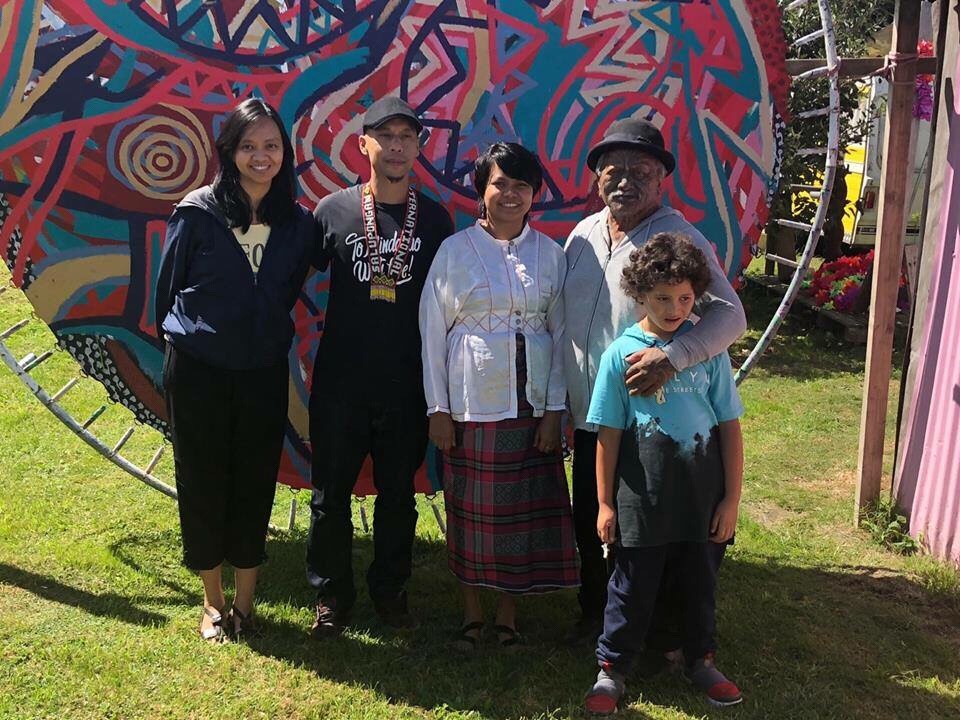
For Lorena Sigua, supporting the Lumad schools was a matter of doing the right thing. She hails from Manila, the country’s capital and more than a thousand kilometers away from Talaingod, despite not being a Lumad herself she is actively volunteering for S.O.S. and its umbrella group – Salupongan International.
Salupongan International is an advocacy group that runs alternative education schools for Lumad communities, their curriculum includes sustainable agricultural practice and holistic healing – a necessity given the inaccessibility of hospitals in their communities. The word ‘salupongan’ is Manobo for “unity”, and the name derives from the phrase: “salupongan ta tanu igkanogon” which translates to “unity in defense of ancestral land”.
Lorena also volunteers for the Education Development Institute (EDI) curriculum development based in Mindanao. During one of the talks in Auckland, at the Peace Place in the city’s central business district, she said that her group is fighting to “defend Lumad land, their right to education, and right to self-determination,” as reported by the Pacific Media Center.
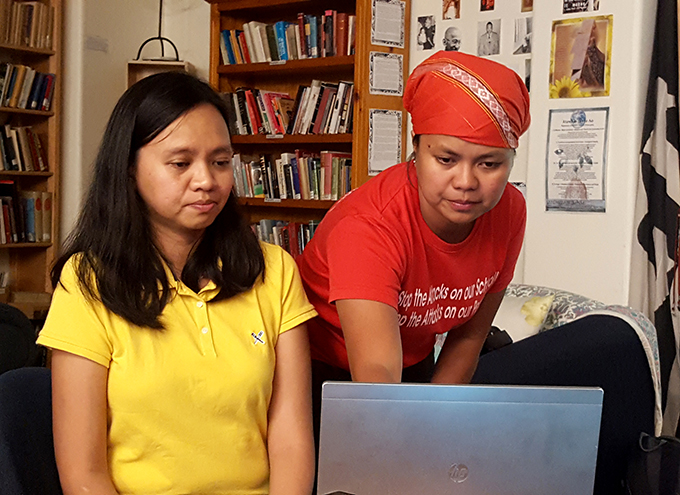
The importance of defending indigenous ancestral lands was also voiced by Anthony “Pele” Navarro, an educator himself who has been doing work with Lumad schools in Mindanao. He shared his experience working in the indigenous communities and the dozens of extrajudicial killings of indigenous leaders.
“There have been 39 indigenous people have been extra-judicially killed under the Duterte regime so far, 36 of those are Lumad leaders from Mindanao,” he said during a radio interview with Radio New Zealand (RNZ). Those killings were done under the cloak of a war against the New People’s Army, a revolutionary group currently at war with the government, but according to Pele none of those killed were rebel fighters.
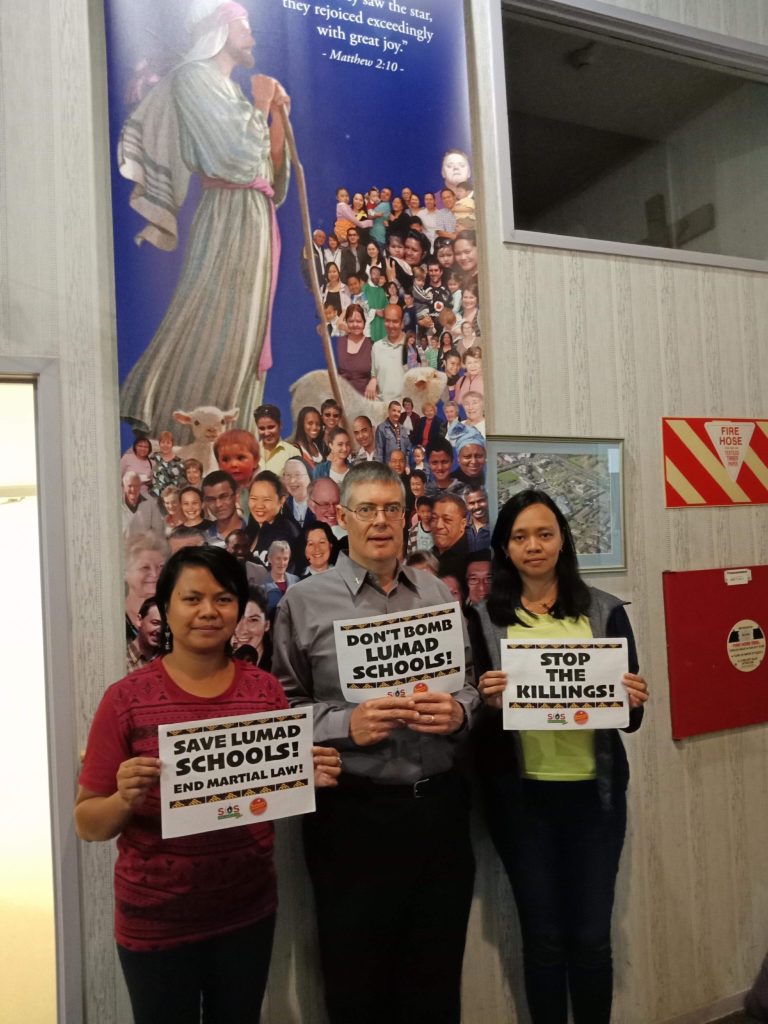
“Red-tagging”, the practice of false-accusing individuals and groups of being “communists” aiming to topple the state, is a common tool despotic regimes use to target dissidents. It is not surprising to see the Duterte government use this strategy against Lumad communities who are simply trying to defend their patrimony, given its Cabinet’s close links to mining communities.
Current environment and natural resources secretary Roy Cimatu is a retired general who has a history of protecting mining companies with his troops. Likewise, Duterte’s current finance secretary – Carlos Dominguez – is a stakeholder of IndoPhil Mining, a large mining corporation that operates in Talaingod itself, through his company Alsons Consolidated Resources Inc.
The mountain the Lumad communities and activists like Lorena and Pele have to climb is not just those which their schools and villages are nested on, but also the mountainous battle against corporate interests with government links that wish to see their communities gone. It is an uphill task, but one which gets easier with more people fighting in solidarity with them.

